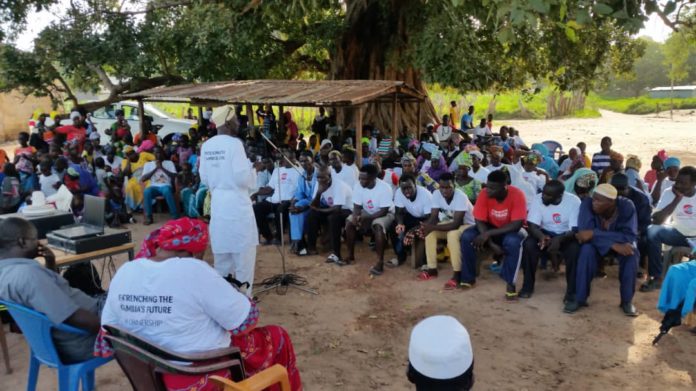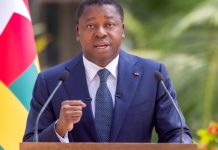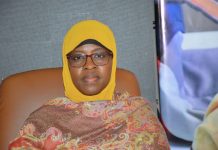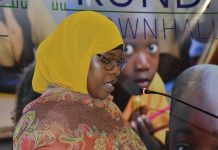By Mustapha Jallow
Officials from the National Council for Civic Education and Constitutional Review Commission (CRC) has on Thursday, 25th October 2018 encouraged community members to make their contributions to the constitutional review process.
The NCCE in partnership with CRC began a two week nationwide civic education campaign across the country meant to set the ground before CRC public consultations would start proper.
The commissioners eighteen month mandate require them to produce a draft new constitution for the country. In fulfilling this process, they are employing various strategies in getting the views and aspirations of Gambians through public consultations for a more people centred constitution.
In her opening statement at Fass Lower Nuimi District, Madam Saffiatou Savage- Sidibeh, civic education officer, CRC, urged communities to participate in the constitution building process.
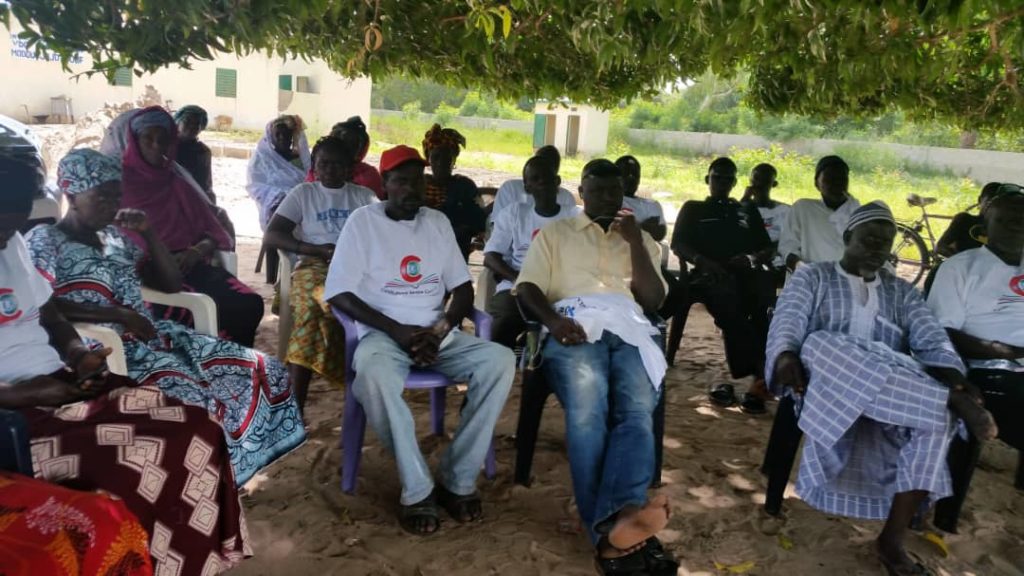
The CRC has been encouraging the populace to take ownership of the constitution and in this regard she told the audience that the content of the final draft of the Constitution depends largely on the feedback generated from the communities.
“We will take your words or answers and make the Constitution. This will benefit our future generations,” she said.
Madam Sidibeh told community members that the main functions of the CRC are to review and analyse the current 1997 constitution .
She said CRC will draft a new constitution for the Republic of the Gambia and prepare a report in relation to the new constitution.
“A constitution is the supreme law of the country and all other laws are made in accordance with the Constitution,” she said.
She added: “It is very important because the Constitution spells out the functions and role of arms of government.”
In his remarks, the delegation leader, Chairman of NCCE, Mr. Sering Fye spoke lengthy about CRC commitment about reviewing the constitution.
Ansumana Yabou, a senior NCCE officer told villagers to look carefully into issues relating to women, the youth and persons living with disabilities.
“We should look into persons with disabilities as to what the law says about them or whether it is helping them. You could suggest your ideas in this respect,” he said.
“This new law is also asking whether prisoners should vote during elections period or not and that answer has to come from you the people,” he said.
NCCE’s Yabou Gambians in the Diaspora were not allowed to vote as per the current constitution. He added that the onus lies on the people now to critically reflect on such rights and see whether they would want it to be area of consideration in their submissions to the CRC team.
He said: “It has never happened in this country, but we are asking if people living in the Diaspora can able to vote would all depends on the desire of Gambian people during the public consultations.”
However, he said the joint team CRC-NCCE they want citizens to have the opportunity to raise their concerns and issues that are important to them as CRC is poise to review the constitution.
“The Constitution belongs to all of us and I want to encourage every Gambian citizen to fully participate in reviewing our Laws,” he said.
Abdou Corr, a native of Fass stated his concerns about whether they are the ones to prepare their own answers for CRC.
Omar Corr another villager also asked the officials questions on accessing this information through Internet.
“Will this be accessible on the Internet because it would be easier for us,” he said.
Similar messages were delivered at Essau by the same officials.
T-shirts and over thousands of copies of a booklet relating to the Constitution were distributed by CRC officials across the country as part of its nationwide sensitisation to raise broad awareness about the current constitution














